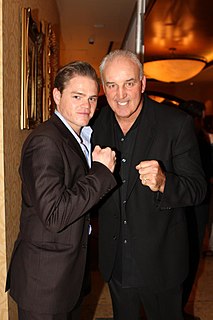A Quote by Ira Kaplan
I think that's a big part of how to stay together as long as possible: learning what to do when things go wrong. And it's particularly hard when you're recording, because the importance of everything you're doing is so magnified.
Related Quotes
On tour things go wrong all the time, I mean that's live music, that's what it's all about. I think one of the things I'm learning is that when stuff goes wrong, really brilliant musicians have the ability to turn this into something interesting and unique. I think good people in any sphere of anything know how to deal with problems, how to take it in your stride. We are learning this by touring, by being put in these positions when we need to focus and deal with it.
What is wrong with encouraging students to put "how well they're doing" ahead of "what they're doing." An impressive and growing body of research suggests that this emphasis (1) undermines students' interest in learning, (2) makes failure seem overwhelming, (3) leads students to avoid challenging themselves, (4) reduces the quality of learning, and (5) invites students to think about how smart they are instead of how hard they tried.
It's such hard work doing a musical. I did my first musical last year, performing in The Producers, and it was a big part to suddenly be doing Leo Bloom in that. It's such hard work. It's a proper slog. It became like clocking in. And it's a big factory - you go in, everyone's got their little plot, people are taking in and out of it if they have days off or holidays, and it's just a jigsaw that all works. It always amazes me that this product would happen every night and it was just all these elements coming together in a big machine.
Chunking is the ability of the brain to learn from data you take in, without having to go back and access or think about all that data every time. As a kid learning how to ride a bike, for instance, you have to think about everything you're doing. You're brain is taking in all that data, and constantly putting it together, seeing patterns, and chunking them together at a higher level. So eventually, when you get on a bike, your brain doesn't have to think about how to ride a bike anymore. You've chunked bike riding.
There's a Theodore Roosevelt speech about the importance of being in the arena, whether you fail or you succeed, or you make a complete idiot of yourself, as long as you're doing the best with what you have, using whatever knowledge you have to bring to the table at that moment. And you continue to keep learning. I think my mistakes have made me much stronger. It's nice to know that things don't ultimately break you; that you need to go there to know.

































